Project management methodology (PMM)
Project management methodology (PMM) is a system of principles, techniques, and procedures.
Factors in choosing a PM Method
- Project goals, objectives, and complexity
- Team - size, level of experience/training, location - remote/on-site, specialization of roles
- Timeline
- Budget
- Stakeholder expectations
- Values/organizational culture
- Ability to take risk
- Flexibility for change
The following is an overview of a few different PMM that hopefully inspires curiosity to learn more. Please contribute additional PMM or other examples to the DLF Project Managers Toolkit.
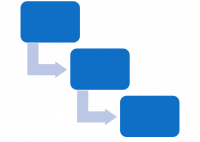
waterfall (software development)
- detailed linear process of tasks in sequential order
- project flows downward like waterfall
- comprehensive, predictable and planned out
- focus on documentation
- good for large projects with multiple stakeholders
- not flexible, if assumptions are wrong, hard to pivot
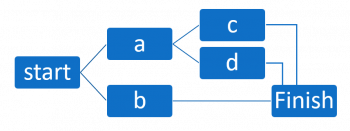
critical path method (CPM) (industry)
- identify and schedule tasks, duration and dependencies
- good for tight timelines and repetitive activities
- not good if unsure of timelines, durations for tasks
- not flexible if there are major changes
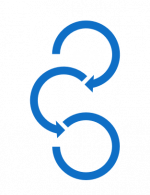
Agile (software development)
- reaction to waterfall method http://agilemanifesto.org/
- "early and often, adjust and iterate"
- flexible and responsive to change
- stakeholders must stay engaged and be available to provide timely feedback
- not always fast in practice if constantly changing deliverables
- not focused on comprehensive documentation
There are many agile approaches including Scrum, Kanban, feature-driven development, and extreme programming (XP).
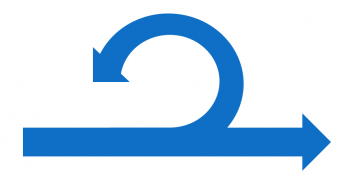
Scrum (software development)
- focus on continuous improvement https://scrumguides.org/scrum-guide.html
- small, cross-functional teams
- work is organized in iterations
- daily "stand-up" meetings
- retrospectives after each sprint
- harder to do with fixed budgets and timelines
- self-managing teams can have issues with scope creep
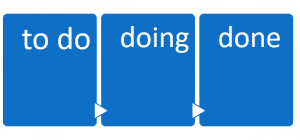
Kanban (industry)
- focus on flow https://kanbanguides.org/english/
- billboard in Japanese
- simple, clear framework
- visualize workflow and tasks
- large and small teams, remote or in person
- not detailed "at-a-glance"
- not if complex, lots of steps in the process
hybrid/structured agile
- combine waterfall and agile methods
- focus on gathering and analyzing requirements then rapid iterations
- best of both worlds - structure and flexibility
- best for medium-sized project with high complexity and fixed budgets
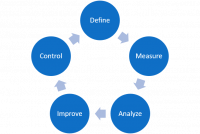
Lean Six Sigma (industry)
- define, measure, analyze, improve, control
- cut waste and maximize efficiency
- quality management, continuous improvement
- measuring > analyzing > improving
- large organizations or efficiency is an issue
Integrated Project Management (IPM)
- focus on documents like project charter, plan, execution, monitoring and change control
- meet regularly as team
- accountability
- time for planning
PRiSM Projects Integrating Sustainable Methods
- developed by Green Project Management Global
- account and minimize adverse environmental impacts
- extends beyond the end of the project
- factors in environmental costs and sustainability is key success criteria
- mostly geared to real estate and industrial projects
Approaches also worth noting:
- Human-centered design - creative approach to problem solving with three phases: inspiration, ideation, implementation; start with people in mind, try it out and test with people in an iterative process.
- Participatory decision-making - creative approach to enabling the entire group ownership and participation in decisions. It includes an emphasis on facilitation and consensus-building.
- Participatory Action Research (PAR) is an approach to research emphasizing co-creation, participation, and action by members of communities affected by the research.
References
There are lots of great articles, presentations and grey lit out there on project management and digital libraries. We've created a Zotero Group library at https://www.zotero.org/groups/2205688/dlf_pmg? and encourage you to add more when you read something good.

